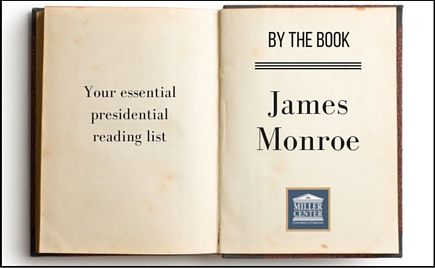By the Book: James Monroe

The first year of a new president’s first term is always a crucible. But often it’s only in hindsight, within the carefully considered pages of an authoritative presidential biography, that the full measure of that first year can be taken. In this new series on the best presidential biographies, Miller Center presidential scholars and experts recommend the ones most worth reading.
James Monroe is a bit of an enigma, because, in part, he followed such well-known predecessors. How can anyone stack up to the likes of George Washington, John Adams, Thomas Jefferson, and James Madison as nation builders? This is the quandary that scholars face, and because of it, not many biographers have taken Monroe on as a project.
Since 1971, the gold-standard is Harry Ammon’s James Monroe: The Quest for National Identity. It is a dense, 706 page read, but if you need to get a sense of this man’s important accomplishments, then you will have to turn to Ammon. For those readers looking for an approachable book, former senator and presidential candidate, Gary Hart, wrote James Monroe for the American Presidents Series.
The newest book, The Last Founding Father: James Monroe and a Nation’s Call to Greatness, by Harlow Giles Unger, tries to pull Monroe away from the orbit of his predecessors. However, he accomplishes this by knocking the others down.
Monroe’s best known accomplishment is the Monroe Doctrine. Jay Sexton’s The Monroe Doctrine: Empire and Nation in Nineteenth-Century America is a fresh look at this topic.
Explore Monroe’s presidency here